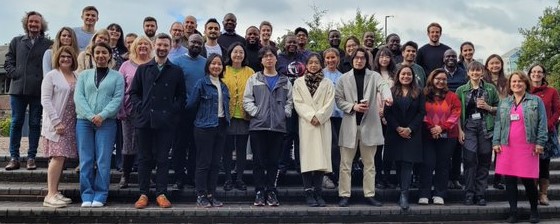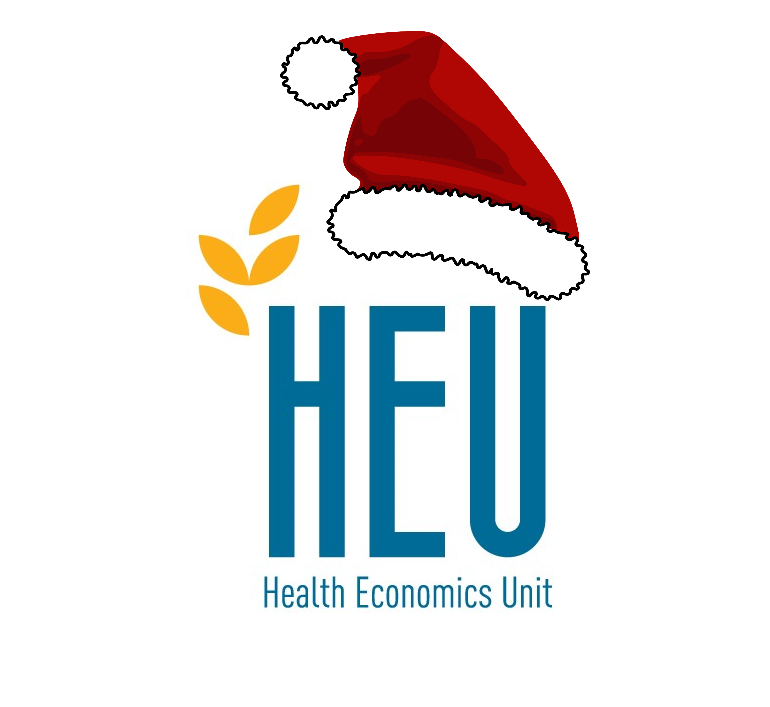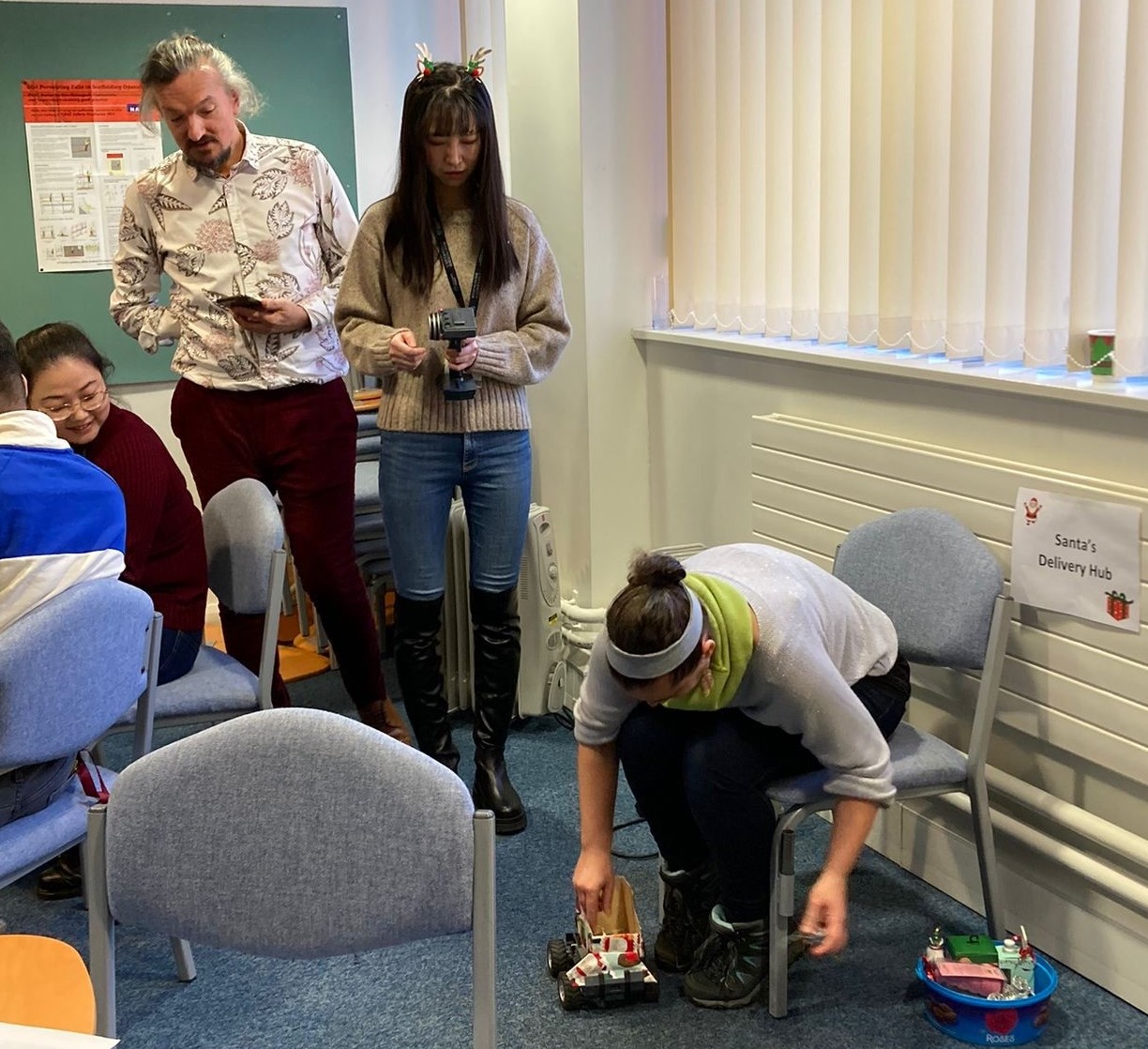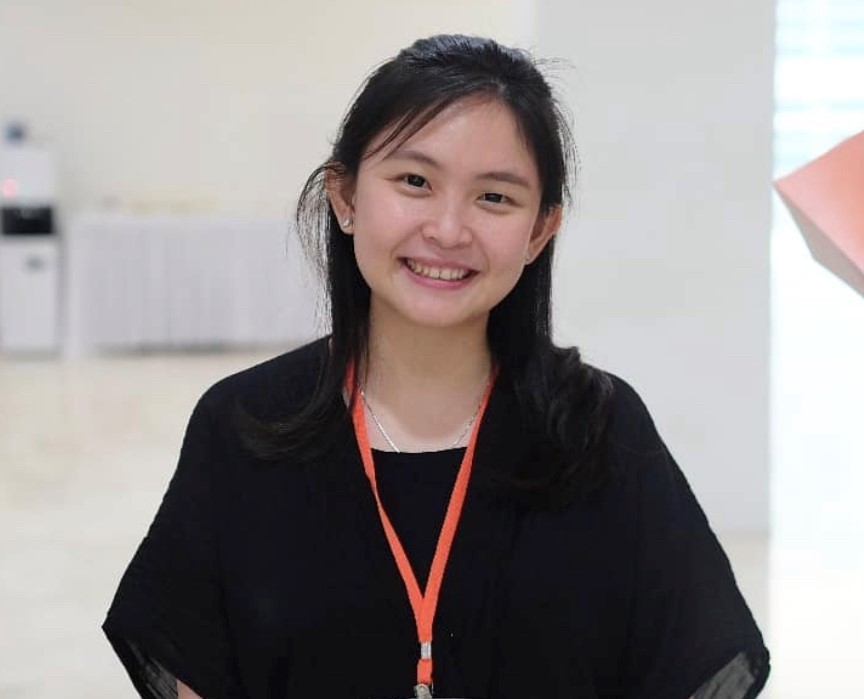
Welcome by Tracy Roberts, Head of Unit

Welcome, blah, Christmas, blah, blah…
Actually, we jest, no bah humbug really, as we are delighted to present our Christmas edition of the HEU Blog. Even though Christmas (and its associated over-indulgence) is not quite upon us yet, HEU has already significantly grown in size and in this issue we are thrilled to welcome just some of our new staff: Melyda, Sam and Abdur. Also in this issue, we introduce a few of our latest research projects, on interventions to reduce weight gain in pregnancy, and to safeguard adolescent mental health in India – just some of an increasing number of global health economics projects involving HEU staff.
In September, we were excited to welcome HEUs 25th Cohort of MSc students in our 25th Year of MSc Health Economics and Health Policy (see photo above). Yesterday we shared some Christmas festivities with this cohort during their first dissertation workshop, but to spare their blushes as they tucked into mince pies and Buck’s fizz – we have no further photos to share. Not the case with the team though (see below), as we show our Christmas games and a trip out for Christmas lunch – we are all expecting to have expanded further by January! 🙂
Season’s greetings to all.



What’s new in HEU?
We would like to extend a very warm welcome to our newest members of HEU staff, Melyda, Sam Perry, and Abdur Razzaque Sarker.

Melyda joined HEU in July 2022 as a Research Fellow, with a background in medicine (radiation oncology). She had completed her MSc in Health Economics and Health Policy at the University of Birmingham in 2020 before joining the team as a member of staff. Melyda is currently working with HEU’s Tracy Roberts and Mark Monahan on the NIHR funded PRE-EMPT project, aiming to explore the clinical and cost-effectiveness of long-acting reversible contraceptives (LARCs) compared with the combined oral contraceptive pill (COCP) in preventing the recurrence of endometriosis.

Sam joined HEU in September to work on the SAMA Project with HEUs Hareth Al-Janabi. As part of the SAMA Project, Sam and Hareth are testing the feasibility of health economics techniques to evaluate school-based interventions to support the emotional wellbeing of adolescents in India. The project is a collaboration with the University of Leeds and the National Institute of Mental Health and Neurosciences (NIMHANS) in Bangalore. Sam is also currently writing up his ESRC-funded PhD in Economics, which uses econometric methods to explore the impact of policy shocks on mental health and wellbeing. He completed the MSc in Health Economics and Econometrics at University of Birmingham in 2017/18, having previously studied for a BSc in Economics at the University of Birmingham.

Abdur joins HEU as a Research Fellow in Health Economics. He obtained his PhD in Health Economics and Management Science from the University of Strathclyde. The focus of his thesis was the economics of disease in lower-middle-income country contexts. He has also completed a ‘Master of Health Economics’ and ‘Master of Economics’ from Bangladesh.
Sarker is currently working on a study which aims to assess the cost-effectiveness of Rapid Diagnostic Centres (RDCs) for unexplained non-specific symptoms of cancer in the West Midlands. Prior to moving to Birmingham, the focus of Sarker’s research was on health systems and economic analysis in both developed and developing nations. He has published over 90 peer-reviewed articles.
Research News
International Weight Management in Pregnancy
HEU’s Duby Ogwulu is currently working with Dyuti Coomar (Research Fellow in Medical Statistics) on the International Weight Management in Pregnancy (i-WIP) project. The i-WIP project is an NIHR Health Technology Assessment (HTA) programme-funded study which aims to determine the effect of diet and physical activity-based lifestyle interventions in pregnant women on maternal and child health outcomes. The i-WIP collaborative group includes 40 researchers across 16 countries involved in lifestyle interventions in pregnancy who have shared Individual Participant Data (IPD), thus contributing to the largest global database in this area.

The current i-WIP project is to determine the effect of diet and physical activity-based interventions on gestational diabetes mellitus (GDM) using IPD meta-analysis, along with economic evaluation. Dyuti is conducting the meta-analysis while Duby is conducting the economic evaluation.
The aim of the economic evaluation is to explore the relative cost-effectiveness of lifestyle interventions to prevent GDM and complications compared with usual care in pregnant women who are categorised as not underweight (based on BMI) in early pregnancy. The economic analysis is using a decision tree model and the input parameters for the model are from the outputs of the IPD meta-analysis. The model is also exploring sub-groups of women based on maternal characteristics such as BMI, age, parity, ethnicity and socioeconomic status. The project is expected to end by March 2023.
Safeguarding Adolescent Mental Health in India (SAMA)

Sam Perry is a Research Fellow in Health Economics. Sam is currently working on the Safeguarding Adolescent Mental Health in India (SAMA) project alongside Hareth Al-Janabi and researchers from the University of Leeds and the National Institute of Mental Health and Neurosciences (NIMHANS) in Bangalore.
SAMA is a three-year research project which works with young people and other stakeholders to co-produce and feasibility test universal school-based interventions to support the emotional wellbeing of school-going adolescents in India. The project is funded by the Medical Research Council, Economic and Social Research Council, the National Institute of Health Research, and UK Aid. Sam’s role in the project is to feasibility test the use of health economic techniques to evaluate the SAMA interventions. This will include conducting think aloud interviews in SAMA schools during a visit to India in January 2023 to explore the feasibility of using health-related quality of life patient reported outcome measures with Indian adolescents. The chosen outcome measures will also be utilised to collect pre- and post-intervention data, and a micro-costing strategy implemented to measure and value the costs associated with the SAMA interventions. This outcome and cost data will be used to generate an exploratory cost-consequence analysis of the intervention strategies. The project is expected to end by December 2023.
Publications arising from Student Dissertations
Uzoegbo S, Bloch S, Jackson LJ (2022) ‘A systematic review and quality appraisal of the economic evaluations of schistosomiasis interventions.’ PLOS Neglected Tropical Diseases. https://doi.org/10.1371/journal.pntd.0010822
Melyda, Gondhowiardjo S, Jackson LJ, Oppong R (2022) Planning human resources and facilities to achieve Sustainable Development Goals: a decision-analytical modelling approach to predict cancer control requirements in Indonesia. BMJ Open 12: e059555. https://bmjopen.bmj.com/content/12/5/e059555
Jiang X, Jackson LJ, Syed MA, Avsar TS, Abdali Z. (2022) Economic evaluations of tobacco control interventions in low- and middle-income countries: a systematic review. Addiction https://onlinelibrary.wiley.com/doi/abs/10.1111/add.15821
Lum KY, Oppong R., Kigozi J. Economic Evaluation of Type 2 Diabetes Mellitus Interventions in Low-and Middle-Income Countries: A Systematic Review of the Literature // Asia Pacific Journal of Public Health. – 2022. – S. 10105395221122643. https://journals.sagepub.com/doi/full/10.1177/10105395221122643
